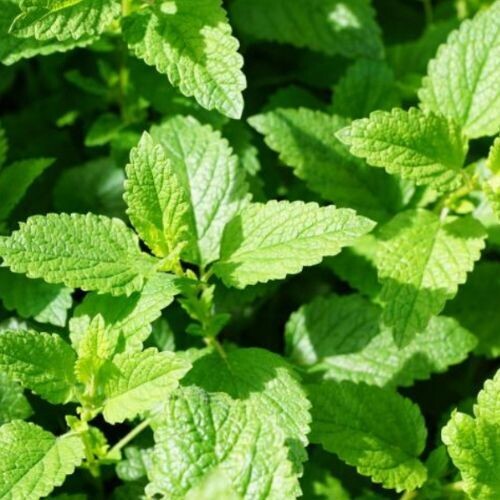PEPPERMINT (Mentha piperita)
Available either as a dried herb or herbal tincture.
Please note this is a nutritional, functional horse food supplement and not veterinary medicine.
See Dr Kellon's Horse Sense - 'Nutrition is not 'Alternative' Therapy.
Tincture
Our human-grade, certified organic tinctures give you a ready-to-absorb potent source of phytonutrients at the highest-strength available, for immediate absorption straight into the bloodstream and to the body’s cells.
100% certified organic pure tincture: Mentha piperita (Peppermint) Leaf, Dist / Inf 1:3 35%, Organic Grown
Feed Guide
- Horse - 30-40ml / Pony - 15-20ml, daily in feed.
- Always shake the bottle to disperse any sediment.
- 3-year shelf-life.
Dried Herb
Produced to ecological standards and free from agro-chemicals.
Certified organic dried herb: Mentha piperita (Peppermint) Leaf, Organic Cultivated, Origin Egypt
Feed Guide
- 5g/100kg bodyweight per day, thus for an average 500kg horse add 25g daily to feed.
- 1-year shelf-life.
Functional Nutritional Value
Constituents: Volatile oils, vitamins, minerals, flavonoids, tannins.
NB. Our range of botanicals are all grown, harvested and dried without the use of agri-chemicals, non-irradiated and GMO free - see our Quality page for Quality Management & Certification Documents. Laboratory tested for identification and compliance to the British and European Pharmacopoeia standards, and are human grade.
Please be aware that if you're purchasing our dried botanicals for human use, our dried range is cut to appropriate sizes for feeding to horses.
More ...
Peppermint has been around since ancient times - the Egyptians, Chinese, Japanese, Greeks, and Romans, were all fans, harvesting the leaves to make teas, tinctures, vinegars, and oils. These days it’s the same – it’s used extensively in cooking and as a flavouring agent for sweets, chewing gum, toothpaste, mouthwashes and medicines, plus smoothies, salads, pestos, desserts and garnishes, not to mention herbal blends for flavour and to improve digestibility – ask any fussy-eater horse!
Peppermint’s medicinal action is mainly due to its volatile oils (including menthol), which are also responsible for its strong aroma. Energetically, peppermint is pungent, slightly sweet, dry, stimulating, relaxing, and warming with a secondary cooling action, with a warming effect when taken internally and a cooling effect on the respiratory system and when applied externally to the skin or aching muscles. Hot peppermint tea relaxes and dilates the arteries to stimulate circulation (a warming action), encouraging perspiration which ultimately cools the body, yet cold peppermint tea is cooling without inducing abnormal sweating ( diaphoresis ).
It's also said to be a vasodilator and circulatory stimulatant, which can cause a warm feeling, so peppermint certainly is perceived to have a dual action in terms of temperature regulation.
All mints are rich in minerals and vitamins. Peppermint contains an awesome array of magnesium, phosphorus, calcium, iron, niacin, potassium, sodium, selenium, riboflavin, thiamine, niacin, vitamins A and C, and even protein. Most of these nutrients are water soluble, so the best way to enjoy the nutrient profile of peppermint is in a water-based extraction such as a tea.
Peppermint is a well-known digestive, antispasmodic and carminative and is helpful for digestive disorders associated with pain and spasm, from gas and colic and cramps to diarrhea, due to its stimulating action on the digestive organs and its ability to relax tension. The bitters in peppermint help tone and cleanse the liver, and has long been used in Chinese medicine to move stagnant energy in the liver and stimulate digestion.
Us humans also know it as an indigestion fixer and anti-emetic (stops vomiting), as it relieves nausea associated with motion sickness and pregnancy. Even simply smelling peppermint can help quell nausea.
Back to those volatile oils and they’re also antimicrobial, said to be effective against a range of bacterial, viral, and fungal infections. Peppermint leaf tea and/or oil shows antiviral activity against influenza A, herpes simplex (cold sores), and vaccinia (smallpox) in vitro, antibacterial activity against multiple human pathogens of the respiratory and digestive tract in vitro, and antifungal activity (McKay & Blumberg, 2006).
Peppermint also has a powerful analgesic action, making it helpful for headaches, toothaches, earaches, and muscle aches.
Traditionally, peppermint is a traditional treatment for fevers, colds, and flus due to the aforementioned antimicrobial, diaphoretic, and analgesic actions, as well as being an anticongestant and antitussive (cough relieving) - inhalation of the volatile oils is a very pleasant aromatic way to help relieve nasal congestion.
As a nervine, peppermint is both relaxing and stimulating to the nervous system. Its relaxant action calms anxiety and relieves tension, with its stimulant powers being useful to wake up in the morning or as an afternoon pick-me-up to recharge vital energy. It’s also said to increase mental clarity and aids concentration – if you allow a horse to gently breathe in peppermint essential oil from the bottle, it’s said to focus their mind for work. As it happens, the Latin name mente means thought , indicating that the Romans considered it a brain tonic.
Overall, peppermint tea or aromatherapy offer excellent support when a boost of physical and/or mental energy is needed.
We blend peppermint into our CalmTonic, ColicTonic, PollenTonic, and UlsaTonic. I’m also lucky in that my horses all love the taste of mint (not all horses do!), so I use it daily as a nutrient-rich palatability aid in their daily feed.
Safety
- Peppermint is considered safe for horses.
The EquiNatural Blog
SECURE CHECKOUT
PayPal / Card / Google Pay
OVERSEAS?
Contact us for a shipping quote
SUBSCRIPTIONS
Subscribe & Save 5%
RETURN, REFUND, REPLACE
Unopened bag? No problem!
Any information contained within
is not intended to replace veterinary or other professional advice.
*
Trading Standards EC Feed
Hygiene Regulation (183/2005), Registration No. GB280/4203
*
HACCP certified facility (an intern-
ational standard that ensures we meet
food safety standards)
*
Registered in England. Company
Number 11075894, Reg'd Office: Unit 4 Rookery Farm, Radstock BA3 4UL
* VAT No. GB 310214964




